Shell Design LCD Installation
Date:2023-09-07
When planning the design of the LCD shell, we should follow some basic
principles. The most important parameters are the size and display area of the
LCD display. Below, we will introduce the shell design of the LCD installation
from the three aspects of the important size parameters of the LCD screen, the
size design of the shell, and the shell assembly process.
1. The important size parameters of the LCD display
Outlet size (TFT OD) -the external size of the LCD display
Visual area (TFT Open) -The visual area of LCD display, you can see the
area.
Effective area (TFT AA) -The activity area of LCD display, where the pixel
is located.
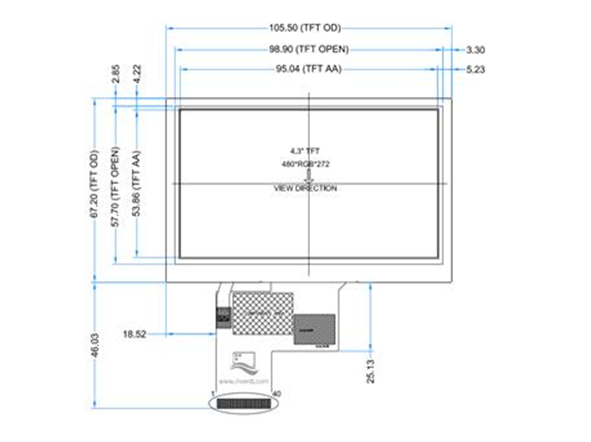
Second, LCD screen shell size design
If the window of the shell is larger than the vision area (TFT Open), the
metal framework of the display screen will be exposed, which will be very
unsightly. On the other hand, if the window is smaller than the effective area
(TFT AA), it will cover the images displayed on the screen.
Therefore, we should start designing the LCD case from the most important
parameter size, namely OD, Open, and AA.
When you design the case for the uxtouch touch screen module, you should
pay attention to the size of the upper glass (the radius of the length, wide,
and angle of horn), the thickness of the touch panel, the thickness of the
glass, and the installation tape. We offer a various uxtouch module installed
tape: 0.2 mm, 0.5 mm, or custom thickness suitable for various applications. In
addition, a very important factor is to locate the display relative to the touch
pad.
For a display module with a installation frame, the diameter and spacing of
the installation hole are important parameters, as shown below.
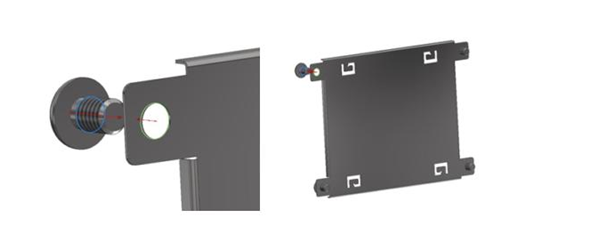
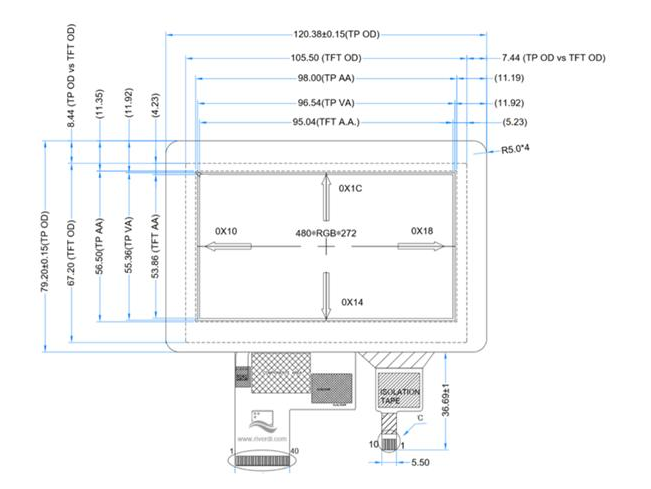
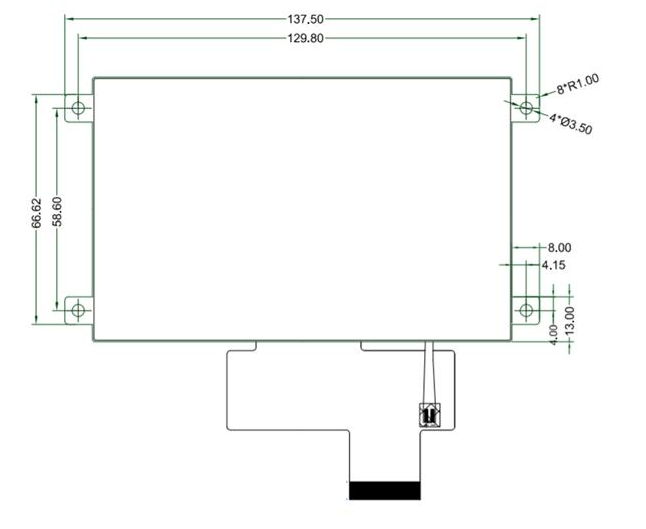
3. LCD screen housing assembly process
The correct assembly process of the LCD display module in the shell is
crucial. During the wrong assembly process, very common damage is:
FFC's damage
Separate from TP and TFT
Damage to TFT glass
Bending of the LCD framework
In the first stage of installing the display module on the shell, you
should pay attention to the protection of the edge of the FFC to ensure that the
FFC will not be damaged.
We recommend the use of supporting frames assembled on the back of the
display screen. Additional support will make the entire structure harder and
minimize the impact of external factors, such as vibration and temperature
changes.
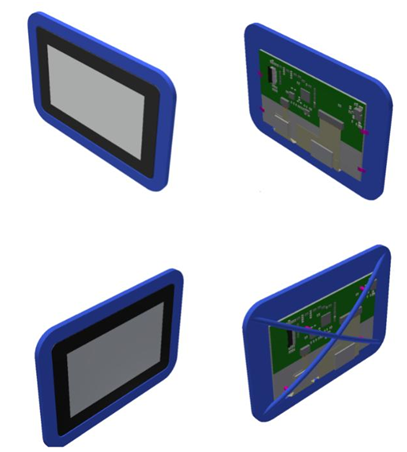
AUO LCD:https://www.auo-lcd.com/products/auo-lcd-screen/
INNOLUX LCD:https://www.auo-lcd.com/products/innolux/








